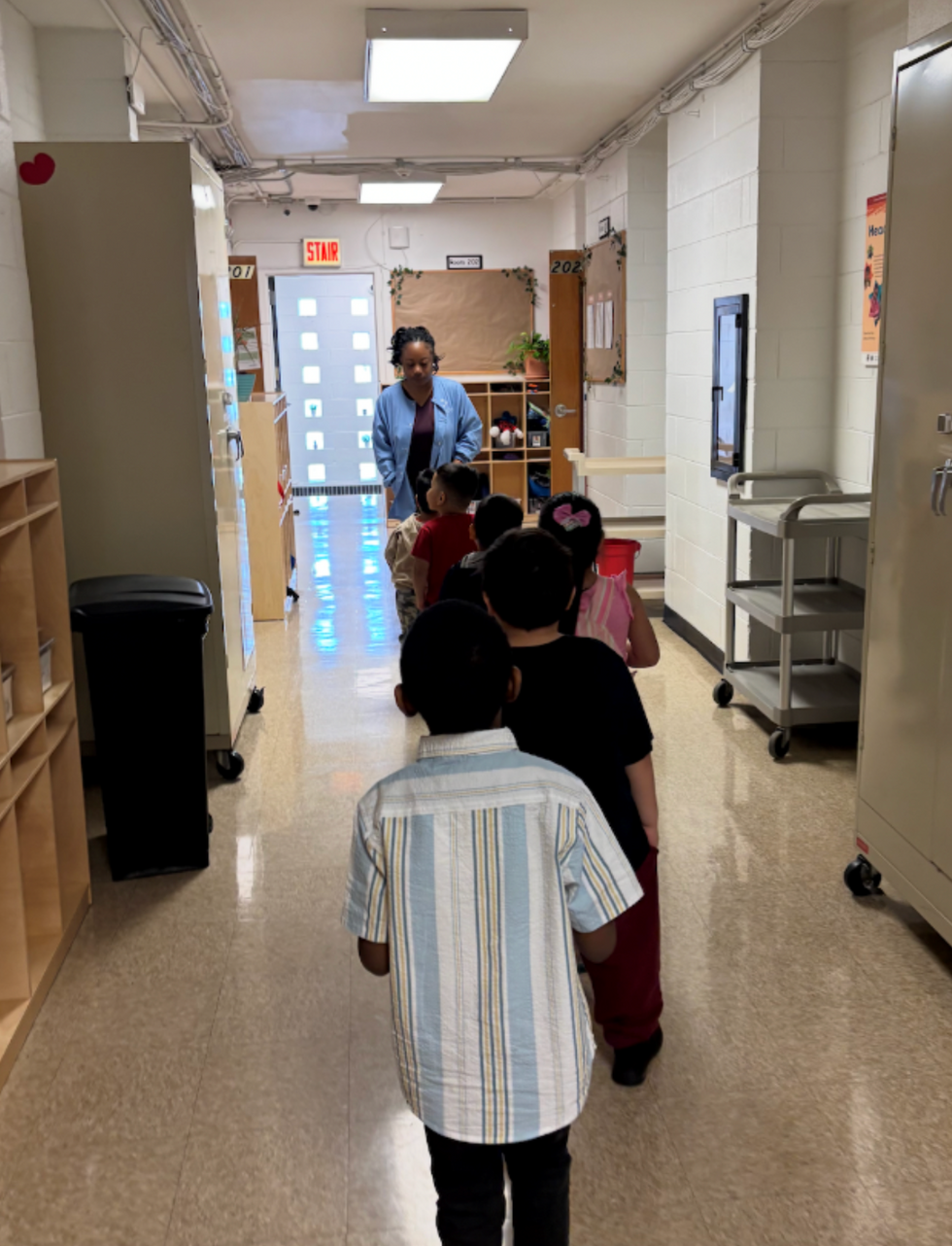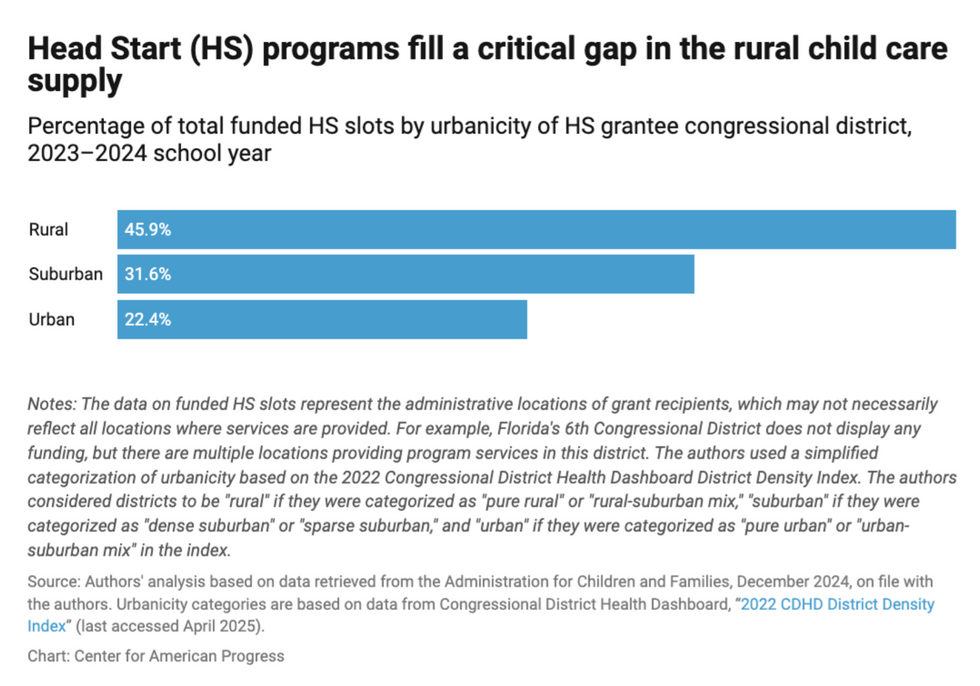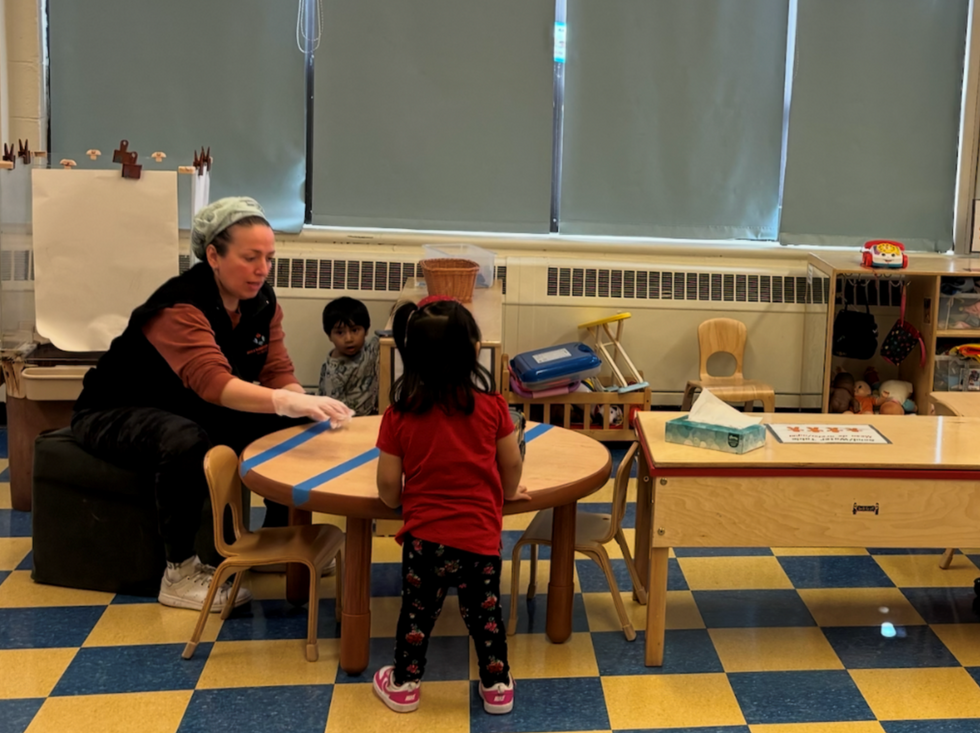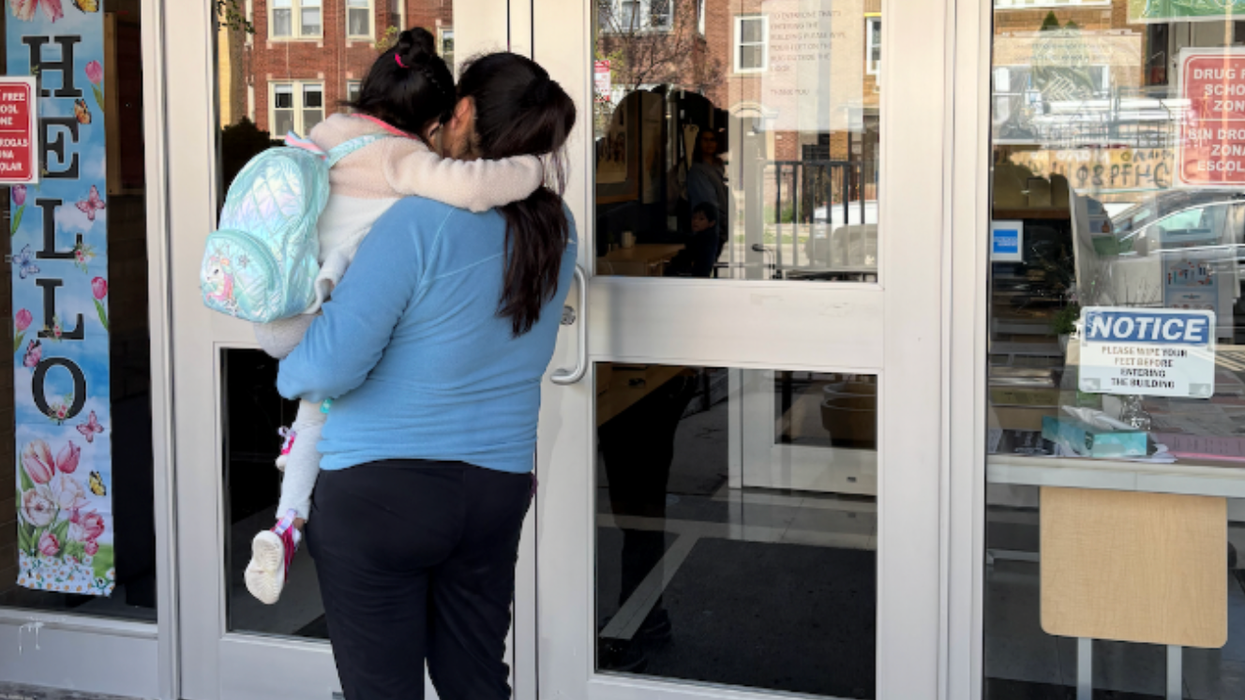ALBANY PARK – The laughter of preschool children permeates the hallways of the Carole Robertson Center for Learning on a sunny Thursday morning in Albany Park.
Teachers line their students up outside classrooms, counting names off one by one. Children congregate by their playmats and colorful rugs, about to be served breakfast.
As a Head Start grantee, critical federal funds help provide these nutritious meals, a majority of what a child at Carole Robertson will eat in a day. Now that funding is in jeopardy.
One of the largest early childhood and youth development organizations in the area, it serves nearly 2,500 children aged 0-17—a majority of whom are under the age of five.
Widespread federal cutbacks and the recent closure of five regional Head Start offices—including the Chicago branch, which services the entire Midwest—have sent hundreds of providers into panic.
Since its inception, Head Start has served nearly 40 million children nationwide and more than 790,000 in the last year alone.
“We heard about the regional office closure on April 1, the same day [it closed],” said Julissa Cruz, senior director of community-based advocacy at the Carole Robertson Center.
Regional offices provide Head Start affiliates with training, technical assistance, and operational and fiscal support. They also assign a direct contact to each organization to communicate with to ensure they have enough resources to operate seamlessly, according to Cruz.
These closures come months after a temporary federal funding freeze disrupted Head Start programs across the country, briefly blocking affiliates’ access to aid that is used to pay employees.
While Carole Robertson receives some money from the state of Illinois and other partners to fund its early learning programs, Cruz said 76% of the operating budget comes from its Head Start grant.
In recent weeks, reports of an internal federal budget proposal to completely defund the 60-year-old organization were released, though no official steps have been taken yet by the Trump administration to further these plans.
On Monday, the Illinois Head Start Association (IHSA) joined several other states in a lawsuit against the Department of Health and Human Services (DHHS) over its plans to defund the program.
“When the regional office closed, it didn't necessarily interrupt our day to day,” said Cruz. “However, [the closure] points to this bigger kind of vision that the administration has for not only Head Start, but government programs at large,” she said.
 Carole Robertson children line up to go play outside. Claire Murphy
Carole Robertson children line up to go play outside. Claire Murphy
A cancellation of the federal funds would impact their ability to offer vital resources to children and families. For other providers, who pull less money from different areas, it would mean a forced closure.
“In a lot of rural areas, Head Start is sometimes the only option available for parents, and parents won’t be able to go to work if they don’t have a safe, secure, educational place for their child,” said IHSA Executive Director Lauri Morrison-Frichtl. This would greatly impact not only the economic stability of the family but also the total welfare of the child, she said.
A 2018 analysis from the Center for American Progress found that Head Start is most critical in rural communities, where child care deserts are common. Of the 10 states surveyed, rural Head Start programs accounted for 22% of the state’s total child care capacity.
Almost 46% of all federally funded Head Start programs are located in rural districts. Without these programs, many rural communities would lose child care altogether.

IHSA serves over 28,000 low-income children and families across the state, with over 500 Head Start sites that provide direct childcare services. Morrison-Frichtl said IHSA receives over $478 million in federal funding for its Head Start and Early Head Start programs.
If the program were to be defunded, it would be a devastating hit for “the most at risk, children and families across the country,” she said.
But these programs do much more than provide educational care for children.
Carole Robertson, named for one of the four young girls killed in the 1963 KKK church bombing in Birmingham, Alabama, provides nutritional meals, medical screenings, and mental health and parental support.
“We have a team of family support specialists who help connect a family to resources,” said Cruz. These resources include assistance in navigating food insecurity, unemployment, housing concerns, and primary care access.
“If the child is not meeting their developmental milestones, there is a team of people who can work with that family so that that parent understands what their options are,” said Cruz. “It’s really 360 degrees of support.”
 Through several external partnerships, the Carole Robertson Center for Learning reaches about 15,000 families across Chicago.Claire Murphy
Through several external partnerships, the Carole Robertson Center for Learning reaches about 15,000 families across Chicago.Claire Murphy
Data from the Office of Head Start supports the assertion of the program’s long-term benefits for at-risk children.
Not only are Head Start children less likely to live in poverty and receive public assistance as adults, but they demonstrate higher levels of social-emotional skills, language abilities, and cognitive development than children who did not attend the program.
“Head Start has proven benefits for children's developmental needs,” said Terri Sabol, a developmental psychologist and an associate professor in the School of Education and Social Policy at Northwestern University.
“There's been several large-scale, randomized, controlled trials that basically show the short-term impact of Head Start for kids who attended Head Start versus those who weren't given access,” said Sabol.
Sabol is also the faculty co-director of the Early Childhood Research Alliance of Chicago ( EC*Reach), which serves as a data hub for early childhood education.
Sabol’s department is currently examining Chicago neighborhoods that have the highest rates of enrolled Head Start children, which will subsequently be most impacted by the regional office closure.
IHSA is actively working with Illinois elected officials and congressional members to get the word out about potential funding cuts. Grantees have created advocacy and call-to-action toolkits that parents and supporters can share to social media.
“We’ve traveled this road before, and parents made the difference in keeping Head Start alive in difficult times,” said Morrison-Frichtl. “We are working with parents across the state to use their voice and let their members of Congress know how much this program means to them.”
Morrison-Frichtl is hopeful that external support will preserve Head Start’s place in the administration’s upcoming budget proposal.
“Head Start is celebrating 60 years this year. We plan to be here for another 60 years,” she said.
Claire Murphy is a master’s student in the investigative specialization at Northwestern University’s Medill School of Journalism. She is also a freelance journalist and is based in Chicago, IL.




















Trump & Hegseth gave Mark Kelly a huge 2028 gift